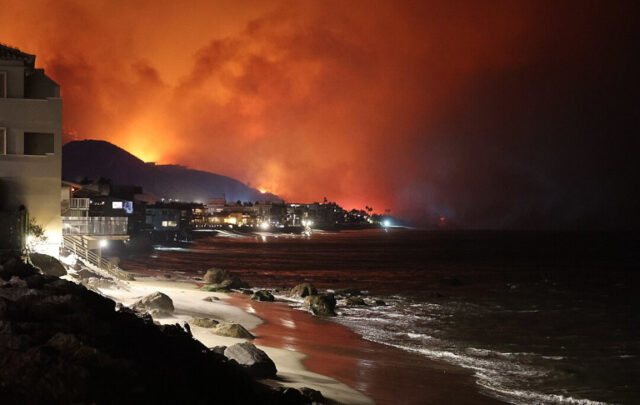Conversation recorded on March 29th, 2022)
Show Summary
On this episode, financial historian Edward Chancellor joins Nate to give a meta-history of interest rates and human societies. With recent news of global financial turmoil in response to rising interest rates, taking a look at our history could help us interpret our present and plan for the future. How deeply entangled is this financial predicament that we’ve gotten ourselves into? Can we learn from the past to reshape a more stable monetary policy in the future, or are inflating financial bubbles (and popping them) simply in our human nature?
About Edward Chancellor:
Edward Chancellor is a financial historian, journalist, and investment strategist. He is the author of Devil Take Hindmost: A History of Financial Speculation and his latest book, The Price of Time, where he explains the story of capitalism is really the story of interest: the price that individuals, companies and nations pay to borrow money. He is currently a columnist for Reuters Breakingviews and a contributor to the Wall Street Journal, MoneyWeek, the New York Review of Books and Financial Times.
Watch on YouTube:
Show Notes & Links to Learn More:
00:20 – Edward Chancellor Works + Info + The Price of Time + Edwards best history book recommendations
01:53 – Lazard Brothers
02:45 – Compound Interest as the ‘8th Wonder of the World’
03:32 – Misattributed quotes
04:25 – History of interest
04:53 – Ancient Mesopotamian dispute over land resulting in a back payment of compounding rent resulting in 8 trillion liters of barley (Page 216)
05:38 – [Richard] Price – Penny accruing 5% interest since 0 BCE it would result in twice the weight of Earth
06:34 – Marx on the impossibility of compound interest
06:49 – Frederick Soddy – Wealth, Virtual Wealth, and Debt
09:34 – Human’s positive time preference
10:57 – Thomas Piketty – Capital in the 21st Century
11:50 – Warren Buffet
13:16 – William N. Goetzmann – Wikipedia
14:08 – Study on the USSR’s lack of interest rate which meant a lack of coordinated activity
15:23 – James Grant – The Universal Price
16:28 – What is Capitalism?
17:04 – Origin of the word capital and other financial terms coming from livestock terms
20:56 – Payback period
21:17 – A higher interest rate is important for creative destruction (Schumpeter)
22:57 – Irving Fisher
24:18 – Jeremy Grantham
24:35 – Kenneth Boulding
24:45 – Spaceship Earth
26:07 – Half of man-made carbon emissions have come since the 1990s
26:26 – China’s real estate boom
27:36 – Chinese investment running at 50% of GDP
27:40 – Chinese cement consumption >1 ton per capita + energy intensity of cement production
28:04 – Cement consumption in Spain during their real estate boom
28:32 – Howard Odum and the 4th Law of Thermodynamics: Maximum Power Principle
34:45 – Oil depletion and scarcity
37:00 – GDP Growth peaked in the 1970s along with crude oil production growth
38:38 – ‘Green’ committed governments turned to subsidizing consumption when energy prices rise
38:55 – Quantitative Easing
39:44 – Low interest rates encourage a lot of high-yield debt investment into fracking without a high return
40:40 – Energy Return on Investment (EROI)
40:53 – Paul Chapman
42:15 – Modern society was built on 20:1 EROI
42:45 – EROI and inflation
44:41 – History of Interest Rates – Sidney Homer, Richard Sylla
46:53 – 16 trillion dollars worth of negative interest rates in Europe
49:17 – COVID Market Mania
49:25 – Charlie Munger
50:25 – Hyperinflation
50:55 – Fiat Currency
51:30 – Gold Standard
51:55 – Volatile short-term rates vs long-term rates
52:29 – In the past 100 years we’ve seen the lowest and highest interest rates in history
52:47 – Devil Take The Hindmost
53:28 – The Government of Japan has bought 50% of its own government bonds
54:14 – South Sea Bubble
55:40 – US household wealth vs US household savings
57:45 – Financial Industry failure to recognize their role in bubbles
1:01:05 – Everything Bubble
1:01:15 – US Household wealth above it’s long term average in terms of percentage of GDP
1:04:05 – SVB/Credit Suisse Banking Problem
1:04:22 – Too Big to Fail
1:07:50 – UK helping gilts market
1:08:04 – US offering financing to US banking system
1:09:02 – Bank of Australia announced its equity is wiped out
1:09:45 – US government spending on COVID relief
1:11:49 – US Government debt
1:13:16 – US Civil War Greenbacks
1:13:55 – Napoleon War inflation and return to normalcy post-war
1:15:55 – Russia + Saudi Arabia account for 45% of oil exports by net export (analysis by ISEOF)
1:17:26 – Bretton Woods
1:18:40 – Fractional Reserve Banking
1:19:39 – Chicago Banking Model
1:20:45 – The annual interest of forests (2.8%/yr)
1:22:28 – Hayek, Benjamin Graham – commodity based currency
1:22:54 – John Law, land-based currency
1:25:02 – Central Bank Digital Currencies
1:25:12 – Expiring currencies
1:26:05 – Panopticon – Jeremy Bentham
1:31:33 – ‘Flight into things of real value’
1:34:33 – Germans stealing turnips during hyperinflation
Teaser photo credit: Pocket watch, savonette-type. By Isabelle Grosjean ZA – Self-published work by ZA, CC BY-SA 3.0, https://commons.wikimedia.org/w/index.php?curid=144336






